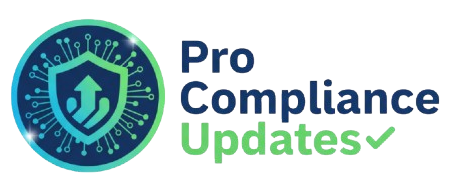Surcharging had been historically prohibited in the U.S. per the networks’ merchant rules, as well as prohibited by law in 10 states. Any state laws will continue to “trump” networks’ merchant rules. The recent changes in surcharging law could not only affect your merchant processing transactions but also your customers’ credit card usage.
When suppliers are reaping the rewards, they should not be adding a surcharge. They might overlook the benefits of card acceptance, as well as the cost of other payment methods like checks and cash. This training on credit card interchange fees rules will clearly explain the changes in the rules, which will benefit from the changes and how it will affect the retailers and customers.
WHY SHOULD YOU ATTEND?
The worst thing end-user organizations can do is to have an uninformed reaction to surcharging. It’s important to first look at the big picture. End-users should also educate suppliers about the economics of card acceptance, pointing out the savings possible and other benefits.
AREA COVERED
- History of surcharging
- What changed in the rules?
- Why did it change?
- Who may benefit?
- Sources of information
- Will this change anything?
- What you should do.
LEARNING OBJECTIVES
- Passing on interchange fees has always been against card network regulations
- Companies have found unique ways to get around the regulations or simply did not comply.
- An anti-trust lawsuit finally filed in 2005 and in July 13, 2012 the suit was finally settled.
- Credit card surcharging is prohibited in ten (10) states while another dozen states are considering legislation.
- This training on credit card surcharges compliance will discuss how the recent changes in law will affect end-user organizations.
- It will also provide attendees with the tools necessary to review and deal with any potential surcharge/checkout fee situations.
WHO WILL BENEFIT?
- Corporate accounts receivable managers
- Industries with large credit card receivables
- Multi-state corporations
- Retail organizations
- Financial Officers
- Risk Officers
- Internal Auditors
- Operational Risk Managers
- Credit Card Program Administrators
- Comptrollers
The worst thing end-user organizations can do is to have an uninformed reaction to surcharging. It’s important to first look at the big picture. End-users should also educate suppliers about the economics of card acceptance, pointing out the savings possible and other benefits.
- History of surcharging
- What changed in the rules?
- Why did it change?
- Who may benefit?
- Sources of information
- Will this change anything?
- What you should do.
- Passing on interchange fees has always been against card network regulations
- Companies have found unique ways to get around the regulations or simply did not comply.
- An anti-trust lawsuit finally filed in 2005 and in July 13, 2012 the suit was finally settled.
- Credit card surcharging is prohibited in ten (10) states while another dozen states are considering legislation.
- This training on credit card surcharges compliance will discuss how the recent changes in law will affect end-user organizations.
- It will also provide attendees with the tools necessary to review and deal with any potential surcharge/checkout fee situations.
- Corporate accounts receivable managers
- Industries with large credit card receivables
- Multi-state corporations
- Retail organizations
- Financial Officers
- Risk Officers
- Internal Auditors
- Operational Risk Managers
- Credit Card Program Administrators
- Comptrollers
Speaker Profile
 Ray Graber
Ray Graber
Ray Graber has a deep and thorough understanding of banking, technology, and finance. His business experience includes banking technology research at TowerGroup; best practices internet policies at FleetBoston Financial; wire transfer operations and product launches at Citibank and BankBoston; and treasury operations for a $325 million public company.Ray was an adjunct professor at the Carroll Graduate School of Management at Boston College where he taught E-Banking, MBA Leadership, Corporate Finance, and the Financial Management of Commercial Banks. He also taught Working Capital and Cash Management at the Bentley College Graduate Business Program.Ray holds a Bachelor of Arts degree in Mathematics …
Upcoming Webinars

Leadership: Strategic Planning and Decision Making

Writing Techniques for Auditors and Risk Management Profess…

Language is Code - Intro to AI - Generative AI - ChatGPT an…

Gossip-Free: Leadership Techniques to Quell Office Chatter

Do's and Don'ts of Giving Effective Feedback for Performanc…

Women’s Hostility to Women at Work: Myth or Reality

4-Hour Virtual Seminar on Audit Proofing your Payroll Opera…

Do's and Don'ts of Documenting Employee Behaviour, Performa…


Retention Starts Here: Stop Losing Your Critical Talent and…


Practice Safe Stress ™: Preventing Burnout While Building R…

Impact Assessments For Supplier Change Notices

Cleanroom, Microbiology and Sterility Assurance Practices f…




Thriving in a Hybrid Workplace: Keys to Leadership and Team…

2-Hour Virtual Seminar on DeepSeek vs ChatGPT AI for CPAs a…

Understanding EBITDA – Definition, Formula & Calculation

FDA Regulation of Artificial Intelligence/ Machine Learning

Construction Lending And Real Credit Administration: Evalua…

Sunshine Act Reporting - Clarification for Clinical Research

How the OBBB Act will Impact Immigration Enforcement! Preve…


2-Hour Virtual Seminar on Outlook - Timesaving Tips and Tri…


Leadership Upskilling: Don’t Just Manage; Lead with Influen…

H-1B Visa Updates and Employer Strategies for 2026

Aligning Your HR Strategy with Your Business Strategy: A Ro…

HIPAA 2025 – Major Changes, Latest Rulings & Guidance

AI for Excel Professionals: Enhancing Productivity with Cha…

Dealing With Difficult People: At Work & In Life

Understanding Accounting for non - Accounting professionals



Excel Power Skills: Master Functions, Formulas, and Macros …
